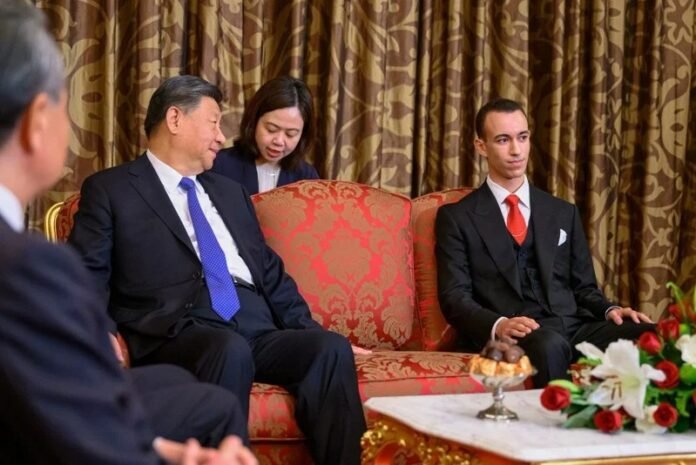Amid rapid geopolitical and economic transformations, Morocco is emerging as an attractive hub for global industries, raising questions about its future role in the global economy. A recent report by the British institute Chatham House predicts that Morocco could become a battleground for global trade between major economic powers, China and Europe, in the electric vehicle sector.
Will Morocco become the “European Mexico,” a gateway for Chinese industries into Europe? Or will Morocco, with its history and unique capabilities, forge a different model that enhances its status as a strategic industrial base in the region? This stimulating report opens the door to an in-depth analysis of the opportunities and challenges facing Morocco at this pivotal stage.
Can Morocco achieve a balance between deepening its partnerships with China and the European Union while safeguarding its national interests? And how will these dynamics impact the regional and global economy?
Morocco and Its Economic Infrastructure
Through free trade agreements signed with numerous countries, including the United States and the European Union, Morocco has become a prime destination for industries seeking access to these markets.
Could this shift be considered a strategic step toward reinforcing Morocco’s position in the global economy?
A report by Chatham House highlights Morocco’s strong industrial infrastructure, with notable success in the automotive sector and the industrial field in general.
Studies show that the quality of automobile production in Morocco surpasses that of some European countries, reflecting a high level of professional competence among Moroccan workers. But can this trajectory be sustained in the face of fierce global competition?
Challenges Facing Morocco as a Chinese Industrial Base
One of Morocco’s major challenges lies in improving its educational system and vocational training programs.
Does Morocco possess the capabilities necessary to provide a skilled workforce that can compete with the efficiency of Chinese labor?
Despite joint agreements between Morocco and China to boost trade exchanges, the main challenge remains enhancing vocational training. The Mexican experience, which adopted the German dual education system, could inspire Morocco.
Could Morocco follow this path to bolster its competitiveness in international markets?
Morocco as a Base for Lithium Battery Manufacturing
Another critical aspect is Morocco’s role in lithium-phosphate battery production. Holding 72% of the world’s phosphate reserves, Morocco is well-positioned to become a significant player in manufacturing lithium-iron-phosphate (LFP) batteries, which are safer and less expensive. Will this emerging technology suffice to position Morocco as a key hub for electric vehicle production?
Conclusion
Amid these transformations, Morocco stands at a historic crossroads. Will it successfully balance exploiting these economic opportunities and protecting its national interests? Could its partnerships with China and Europe become a model for international economic cooperation? The future remains to be seen.


